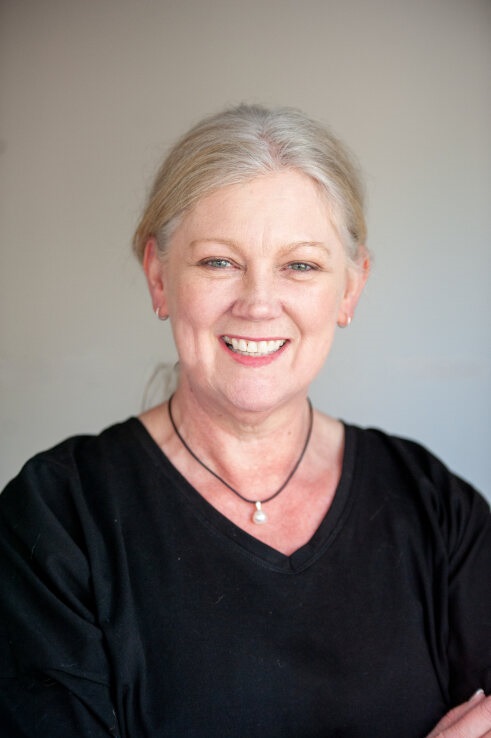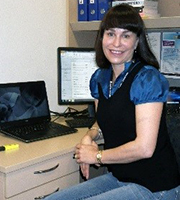Students

Current PRECRU HDR students
Paige Watkins PhD Thesis - The Epidemiology of Ambulance Attended Falls in Western Australia (WA).

Qualifications
B.Sc. Exercise, Sports & Rehabilitation (Hons).
Summary
Paige Watkins is a student in the Prehospital, Resuscitation and Emergency Care Research Unit (PRECRU) in the Faculty of Health Sciences at Curtin University. This research aims to examine the factors surrounding ambulance attendance and paramedic intervention to falls in WA.
Why my research is important
Australia’s population is ageing and the risk of falling increases significantly with age. More than 40% of people ages > 65 years will experience at least one fall each year increasing the demand for Emergency Response Services (EMS). This research aims to explore The Pre-Hospital Epidemiology and management of Ambulance attended falls in Western Australia.
Paul Braybrook PhD Thesis: The Epidemiology of injuries sustained on recreational trails in Western Australia

Qualifications
BSc(Hons), MSc
PhD thesis
The Epidemiology of injuries sustained on recreational trails in Western Australia
Summary
Approximately 5.6% of Australians have been diagnosed with cardiovascular disease and a further 4.8% are diagnosed with type two diabetes. These two conditions are approximated to cost around $13 billion representing over 11% of all Australian healthcare spending. These conditions are shown to be strongly associated with obesity and physical inactivity. Access to the natural outdoor environmental trails increases participation in recreational trail use, increasing peoples physical activity levels. The West Australian government has recognised that in addition to trails providing health benefits to the local population they also serve as a potential for income generation through tourism both from intra and inter-state. The WA government has committed to over $20 million dollars being spent to improve existing trails and build new trails both for mountain biking and hiking.
The specific objectives of this study are: 1. to gain an epidemiological understanding of the injuries occurring on trails in WA; 2. To undertake a spatial analysis of the injuries occurring with consideration of the available EMS resources in those regions and 3. To investigate the types and frequency on injuries occurring at mass participation trail events currently undertaken in WA.
Why my research is important
An understanding of the epidemiology of injuries that occur on these trails in addition to the pre hospital resources allocated to these injuries will help inform the healthcare implications of trail investment in addition to the likely future EMS resourcing needs to cater for them. The research will provide information to trail designers to allow for consideration of safety in design and improve patient outcomes for when injuries occur.
Paul is currently a paramedic with St John Ambulance Western Australia with a previous background in environmental science and management.
Emogene Aldridge PhD thesis: Factors that impact on bystander cardiopulmonary resuscitation performance during the emergency ambulance call for out-of-hospital cardiac arrest

Qualifications
BHlthSc, MPH
Summary
Emogene is a full-time PhD candidate with a background in Public Health and Emergency Medicine research. Emogene has been awarded a NHMRC Postgraduate Scholarship to support this PhD project.
Why my research is important
Emogene’s doctoral research aims to provide insight into bystander CPR, focusing on factors that can facilitate or inhibit the performance of bystander CPR and the quality of bystander CPR from the point of initiation during the emergency call through to the arrival of EMS. A greater understanding of this process could help inform how call-takers instruct and motivate bystanders, which in turn could lead to improved survival outcomes for OHCA.
Ashlea Smith PhD Thesis: The epidemiology and prehospital management of out-of-hospital cardiac arrest in rural versus metropolitan locations in Western Australis

Qualifications
Bachelor of Science, Bachelor of Health Science (Paramedic), Registered Paramedic
PhD Thesis
The epidemiology and prehospital management of out-of-hospital cardiac arrest in rural versus metropolitan locations in Western Australia.
Summary
Ashlea is a full time PhD candidate at PRECRU at Curtin University on a full NHMRC scholarship. Ashlea is a registered Ambulance Paramedic and currently practices for St John WA.
Why my research is important
With the disparity in survival rates and response times of ambulance treated OHCA in metropolitan versus rural areas of Western Australia, my research aims to understand the epidemiology of OHCA and current prehospital management to inform future strategies to address geographical variation in outcomes.
Derek Collings-Hughes PhD Thesis: The Prehospital Response to, and Management of, Water-Based Injuries and Medical Events in Western Australia

Qualifications
Bachelor of Paramedicine (Honours), MACPara
PhD Thesis
The Prehospital Response to, and Management of, Water-Based Injuries and Medical Events in Western Australia.
Summary
Water-based activities are commonplace in Western Australia and the range of potential activities undertaken in the water-based environment is broad, as are the hazards associated with these activities. Due to the range of incident types and the complexity of this environment, managing water-based events is potentially difficult for ambulance personnel and the prehospital response to water-based emergencies may require a multi-agency response. To date, however, little is known about Western Australia’s prehospital response to water-based incidents.
Why my research is important
This research proposes to inform our understanding of the types of water-based events occurring in Western Australia, identify where they occur and explore the challenges first-responders face in responding to these events. This knowledge will allow policymakers, emergency services and clinicians to better prepare for these events. Furthermore, this research will also add to the growing literature investigating ambulance attendance epidemiology and the body of evidence investigating fatal and non-fatal drowning in wealthy countries such as Australia.
Nicole Carter PhD Thesis: Patterns and Trends in Urgent Care Centres: Exploring Urgent Care Practices in Western Australia

Qualifications
MNNP (CDU), BNurs (ECU), GCertPubSecMgmt (Flinders), GradCertClinNse (Emerg ECU)
Ph.D. Thesis
Patterns and Trends in Urgent Care Centres: Exploring Urgent Care Practices in Western Australia
Summary
Nicole is a full-time PhD student with a background in healthcare that includes clinical, management, and strategic areas. She is a Nurse Practitioner specialising in emergency, rural, and urgent care.
Why my research is important
Nicole’s doctoral research explores patient epidemiology and utilisation patterns within Urgent Care Centres (UCCs), along with a qualitative investigation into patient decision-making processes and experiences. This research aims to conduct a descriptive epidemiological analysis of UCCs attendance at St John WA metropolitan facilities, examine the impact of billing practices (bulk billing vs private billing) on the epidemiological profile of patients seeking care at UCCs, and investigate the factors influencing patients’ choice between UCCs and Emergency Department care. This research seeks to contribute to the existing literature, offer insights to enhance healthcare delivery and optimise patient outcomes.
Completed PRECRU HDR students
Nicole Frances Mckenzie PhD thesis: Post-resuscitation care after out of hospital cardiac arrest: Identification of in hospital prognostic determinants

Qualifications
MPH, PG Dip (Critical Care), B Nurs, RN
Summary
Nicole Mckenzie is a PhD candidate at PRECRU and holds an Adjunct Research Associate position at Royal Perth Hospital in Western Australia.
Originally from Perth, Nicole was awarded a postgraduate qualification in clinical nursing in 2000 and completed a Master of Public Health in 2009. She has a background in critical care nursing in Australia and the Middle East, including contracts in the United Arab Emirates and Saudi Arabia.
Nicole is an Aus-ROC PhD scholar and also holds an Australian Postgraduate Award and a Curtin University Postgraduate Scholarship (CUPS).
Why my research is important
Nicole’s research aims to describe the in-hospital post-resuscitation care of out-of-hospital cardiac arrest (OHCA) patients. Post-resuscitation care is an important link in the chain of survival after OHCA. An observational cohort study that describes the in-hospital post-resuscitation care of OHCA patients and quantifies its association with patient outcomes will provide opportunities to improve post-resuscitation care.
Milena Talikowska PhD Thesis: The relationship between the quality of cardiopulmonary resuscitation (CPR) performed by paramedics and survival outcomes from out-of-hospital cardiac arrest (OHCA).

Qualifications
MPhil, BEng (Hons), BSc
PhD Thesis
The relationship between the quality of cardiopulmonary resuscitation (CPR) performed by paramedics and survival outcomes from out-of-hospital cardiac arrest (OHCA).
Thesis can be found here
Summary
Milena’s doctoral research sought to quantify the relationship between CPR quality and survival outcomes in OHCA patients attended by St John Ambulance (SJA) paramedics in Perth, Western Australia.
Data on CPR quality including compression rate, depth, and fraction, was collected using the Philips HeartStart MRx Monitor/Defibrillator which features the Q-CPR™ measurement/feedback tool.
Patient outcome data was obtained from the SJA-WA OHCA database which contained information from SJA-WA Patient Care Records for OHCAs attended by SJA-WA paramedics and is linked to the WA death registry and supplemented by hospital medical record review.
Statistical analysis was performed using STATA to determine whether a relationship existed between CPR quality and survival outcomes in the study population.
Why my research is important
Cardiac arrest (CA) is a significant global health issue, yet survival rates remain low (often less than 10%). CA is managed, in the first instance, using cardiopulmonary resuscitation and defibrillation. Over the past decade there has been an increased emphasis upon CPR quality. This study aimed to quantify the relationship between CPR quality and patient outcomes, and in doing so identified new ways by which to increase survival rates.
Milena was an Aus-ROC PhD scholar (https://www.ausroc.org.au/) and was also awarded an Australian Postgraduate Award (APA) and a Curtin University Postgraduate Scholarship (CUPS) to fund her research.
Elizabeth Brown The Epidemiology of Trauma Patients Attended by a Paramedic Staffed Emergency Medical Service in Perth, Western Australia

Qualifications
BSc(Hons), MSc(Paramedical Science)
PhD thesis
The Epidemiology of Trauma Patients Attended by a Paramedic Staffed Emergency Medical Service in Perth, Western Australia
Copy can be found here
Summary
Trauma is a leading cause of death worldwide; including the leading cause of death in persons aged 15-44 years. The aim of this research is to describe the epidemiology of trauma patients that are attended by a paramedic staffed Emergency Medical Service, in the metropolitan area of Perth, Western Australian (WA). The specific objectives of this study are: 1. to describe the characteristics of patients with trauma; 2. to discuss the clinical interventions performed by paramedics for patients with traumatic injuries in the pre-hospital environment and 3. to explain the pre-hospital factors associated with 30-day mortality.
An understanding of the epidemiology of traumatic injuries that occur within the Perth, WA metropolitan region, can inform appropriate pre-hospital management that can lead to improved patient-centred outcomes. Improving patient outcomes is likely to reduce the burden of illness associated with traumatic injuries and improve the life-span and productivity of trauma patients. In addition, this research will provide evidence to inform policy makers and enable the specific demands of the trauma seen in WA to be met. Ultimately, the outcome of the study will enable the opportunity for improving patient outcomes through changes in the pre-hospital management of trauma.
Elizabeth is a paramedic currently employed by St John Ambulance Western Australia. Previously she worked as a paramedic with the London Ambulance Service in the UK.
David Majewski PhD Thesis: The epidemiology of out of hospital cardiac arrests in Western Australia

Qualifications
DPM, Grad Dip, BSc, Dip
PhD Thesis
The Epidemiology of Out of Hospital Cardiac Arrests in Western Australia
Summary
This research aims to examine the factors that influence short and long term survival in OHCA.
Why my research is important
Out of hospital cardiac arrest is a major global health concern that results in substantial loss of life. Despite many improvements in patient care, survival remains low, with approximately 10 per cent of patients surviving to hospital discharge. One potential way to reduce mortality is to identify those populations at greatest risk for OHCA. However, our current understanding of chronic health conditions and their effect on OHCA is limited. This research therefore aims to develop a better understanding of the epidemiology of OHCA patients before cardiac arrest in order to gain a greater appreciation of what health factors are associated with OHCA and their relation to survival.
David has been awarded a Research Training Program (RTP) stipend, Curtin Research Scholarship (CRS) and a PRECRU Scholarship to fund his research.
Ellen Ceklic PhD thesis: Pre-hospital emergency medical services prioritisation of road crash victims: a retrospective study using population based linked data.

Qualifications
Bsc(Psych)(Hons), GCHumanFact
PhD Thesis
Pre-hospital emergency medical services prioritisation of road crash victims: a retrospective study using population based linked data.
Summary
During the ‘000’ phone call, accurate description of the patients’ condition by a bystander at the scene of a road crash is important for effective prioritisation of ambulance dispatch, and also for the provision of first-aid instructions by the call-taker. Based on a series of scripted questions prescribed by the Medical Priority Dispatch System (MPDS), the call-taker attempts to determine the severity of injury and the required ambulance priority. For road crashes, an approach for determining the need for urgent medical care could be using on-scene characteristics of the crash such as airbag deployment, involvement of vulnerable road users such as pedestrians or requirement for extrication. This research proposes to investigate the on-scene crash characteristics that are associated with patient acuity for those involved in a road crash.
Why my research is important
Through improved identification of patients requiring urgent care, the proposed research represents a potential improved efficiency in the allocation of limited ambulance resources by reducing over-triage of road crash victims. Whilst outcomes for road crash patients are unlikely to improve from this research there is indirect benefit for other patients.
Ellen has worked as an analyst for various state and federal government departments. She is skilled in the analysis of complex linked datasets.
Jason Belcher Masters thesis: Accuracy of call-taker assessment of patient conscious state during emergency ambulance calls in Western Australia
Qualifications
Bsc(Digital Media), Bsc (Paramedicine)
Accuracy of call-taker assessment of patient conscious state during emergency ambulance calls in Western Australia